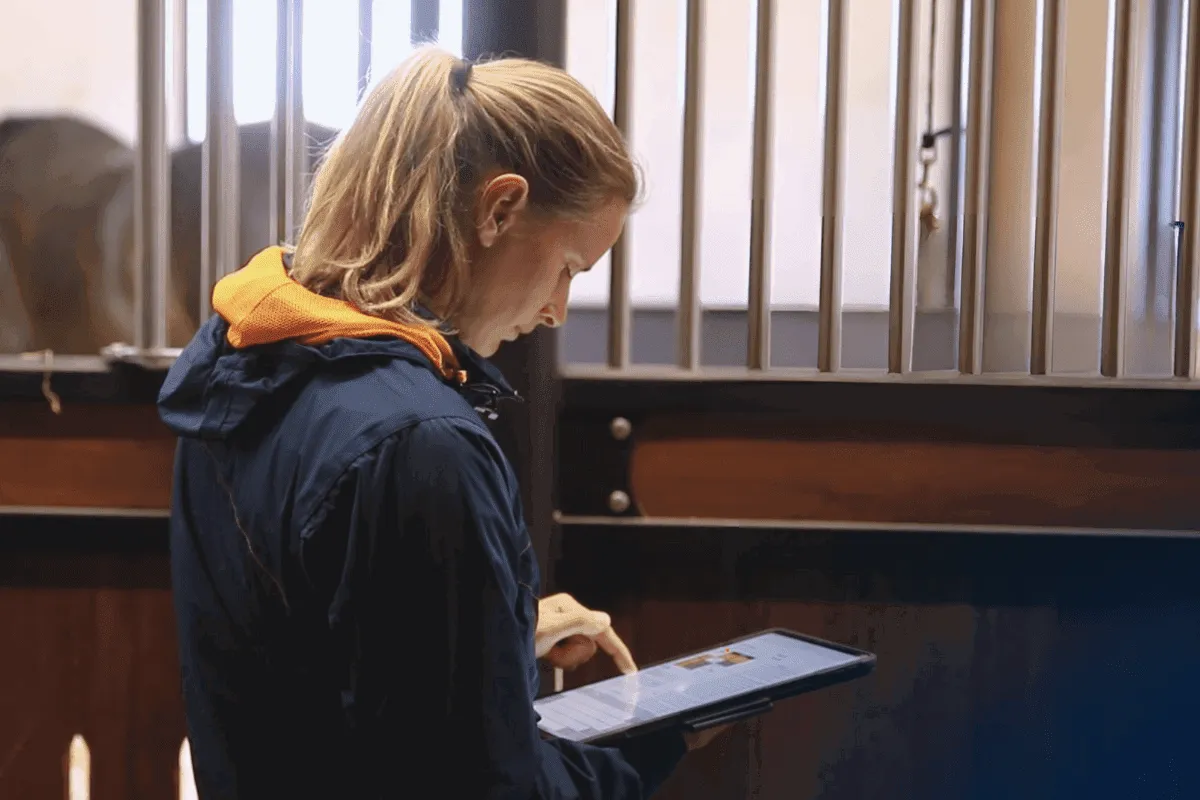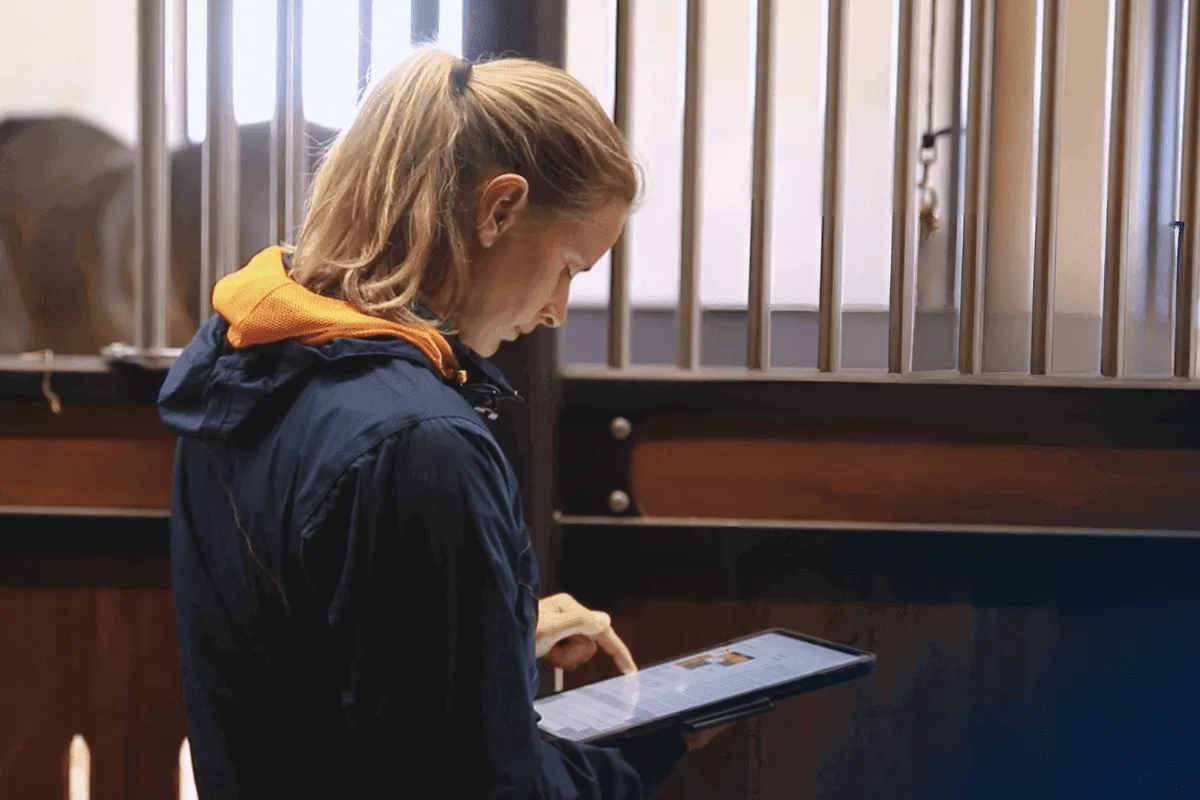The days are getting shorter and shorter, your horse’s coat longer, and the temperature is falling fast: winter is coming! And winter poses challenges for you as a horse owner. What is the best way to keep your horse warm? How to ensure good ventilation now that the horses are spending more time in the stable? Of course there are also many competition riders who take their horses to Southern Europe to compete in famous shows. In this blog, we discuss winter, its challenges, and a few solutions.
We all know what winter is, but what does it mean for our horses? It’s the coldest season of the year. This varies in different parts of the world, but in Europe winter is between December and March. Not only the time of winter differs worldwide, but also the cold itself – different in Canada than in Belgium. It is the difference between a cold climate (between -15 °C and 10 °C) and a moderate climate (between 5 °C and 25 °C). It also makes a difference whether your horse is a foal or an adult. A foal is, logically, less able to keep itself warm when it is cold.
Winter is different all over the world
Feeding for a good body temperature
The picture below illustrates why a horse’s energy is so important. A horse in the thermoneutral zone does not need any energy to maintain its body temperature. When it gets colder, the body will start using more energy to maintain the right temperature. You could say that it is only cold when the horse has to use energy to keep itself warm. The best strategy for helping your horse maintain a comfortable body temperature (both indoors and out) is to feed it roughage. The digestion of fibre produces heat. Consider giving him a warm mash as a little extra treat.

Omega-3 and omega-6
These days, young horses and broodmares are stabled in winter, where they have access to unlimited roughage – no luxury for horses that are used to 24/7 turnout in warmer seasons. Unprocessed roughage keeps the digestive system working continuously. Keep in mind that roughage alone is never sufficient. The horse may get enough in terms of energy intake, but not the vitamins and minerals that it gets from fresh grass. In addition, roughage alone will not give a horse the omega-3 and omega-6 fatty acids that it needs. These are what are called essential fatty acids, meaning that the body needs these substances but cannot produce them itself. The fatty acids must therefore be taken in via feed. This is not only important for broodmares and young horses, but for all horses that are kept stabled during the winter season.
Omega-3 & omega-6 are not produced by the body itself
Horses that spend most of their time in the barn, because outdoor grazing is either not possible or not practicable, often have a lower intake of omega-3 fatty acids. It is important that the ratio between omega-3 and omega-6 fatty acids remains in balance. If this ratio is in balance, the horse will automatically produce enough omega-9.
The correct ratio of omega-3 and omega-6 fatty acids not only has a positive effect on the immune system but also on the overall health of the horse. An imbalance between these fatty acids may lead to inflammation, poor coat, weakened immune system, and reduced fertility.
Resistance always takes priority
Horses don’t get sick from the cold, reduced resistance can make them susceptible! Just like with people, horses’ natural defences can decrease in winter. Being inside has an influence, but temperature fluctuations can also cause your horse’s resistance to be lower than ideal. In the video below, you’ll learn how to keep your horse’s immune system strong.
Tips from our nutritionists: getting through the winter with the right products
With winter comes change: your horse transitions from fresh grass to roughage and is kept inside more. Your horse will not get enough vitamins and fibre from roughage alone. That is why replenishment is important. Add balancers to the ration to make up for any shortages. Nutri Grow is made specially for broodmares and young horses. For sport horses, there is Nutri Plus and for leisure horses there is Nutri Support. These three products each contain a well-balanced mix of vitamins and minerals – everything a horse needs apart from roughage. Pregnant mares need more support starting in the seventh month. In addition to extra vitamins and minerals, a mare needs more energy and protein.
Cavalor Fiber Beet Mash is a high-fibre mash. Fibre is an important component of a horse’s diet. This mash contains dried beet pulp flakes and long fibres. Soak 20 minutes before feeding to give your horse a winter treat.
Natural resistance is important to us at Cavalor, and we know that good resistance does not always come naturally. That’s why we have developed products to support your horse’s natural defences. OilMega ensures good equine health from the inside out. Omega 3 – 6 – 9 fatty acids together with natural antibiotic properties ensure a healthy gut flora and extra support for the immune system.
Is your horse’s immune system already strained? Do you have an older horse, one that travels a lot, or that has just been vaccinated? Then he may need a little extra help. Resist + Vit C is a powder blend of antioxidants, herbal extracts, and essential oils that help strengthen the immune system. A combination of different antioxidants is more effective than a high dose of one antioxidant because each works in different ways.
Want to read more about horses and the winter season? We’ve written several articles on this topic.
In this article, we discuss how to keep your horse in shape during the winter. In this article, you can read more about winter ailments such as mud fever, thrush, and respiratory diseases. And in this article you can read about sport horses in winter.




